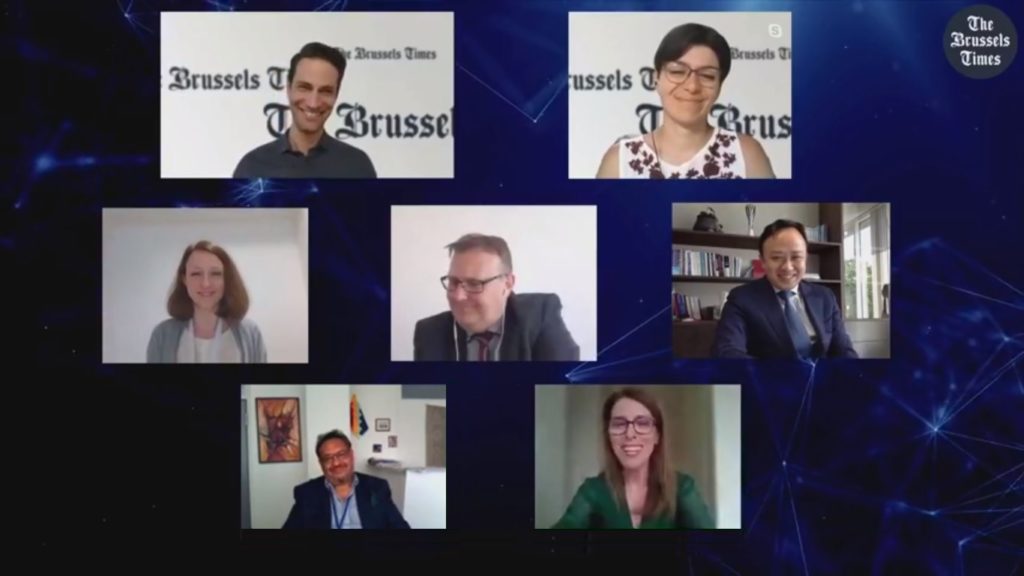The coronavirus pandemic ushered in an unprecedented level of connectivity, but leaders looking to technology to ease societies into post-pandemic realities must work together to avoid novel risks and to avoid creating a new digital divide.
This was one of the main points of discussion during a webinar about economic recovery hosted by The Brussels Times on Monday, 25 May. The debate was moderated by Dan Sobovitz and Pauline Bock.
Policymakers, businesses and many ordinary citizens have left physical workspaces and begun crafting a new cyber ecosystem, but digital experts taking part in the online debate agreed that innovation was needed to ensure these new online spaces were both safe and inclusive.
“When the pandemic hit, we migrated immediately into cyberspace, but who can afford to be in this space?” Bernardo Calzadilla Sarmiento, director for trade and innovation at the UN’s Industrial Development Organisation asked fellow panellists.
His comments were echoed by Nada Sirotić, chair of the EU Council’s Research Working Group under Croatia’s current council presidency, who said that it was crucial to leverage new technologies to “tackle the socio-economic impact of this crisis.”
Digital tools and infrastructure have been key to the rapid national responses of some countries to the crisis, Abraham Liu, Chief Representative to the EU Institutions at Huawei, said, citing the examples of South Korea and China’s use of technology to rein in the spread of the virus.
During the debate, panellists said their organisations, all working across national borders, had begun adapting to new forms working throughout the lockdown. Similarly, an overwhelming majority (74%) of viewers polled during the live debate said they would be in favour of continuing to work from home after the crisis.
But experts in the discussion agreed that embracing new technologies should go hand-in-hand with the collaboration and ambition needed to fight existing inequalities, which continue to plague even the economies of countries traditionally described as developed.
“The pandemic has really brought to the fore that, in many developed countries, there still remains a digital divide that has been highlighted and exacerbated,” by the pandemic, Isabelle Mauro head of the World Economic Forum’s telecom and digital industries branch said.
Stimulating innovation and collaboration between public and private stakeholders are key in accelerating the development of technologies which offer promising perspectives for a post-Covid-19 future, the experts said.
“We need much more investment to support innovation,” Jaroslaw Ponder, of the International Telecommunications Union’s European Office said, also stressing the need to further develop tools and habits capable of protecting children and other vulnerable groups online.
“Inclusivity connectivity is important,” Abraham Liu concluded, adding that, in creating the digital environments of the future, solidarity and creativity were crucial to bring about positive changes.
The Brussels Times


